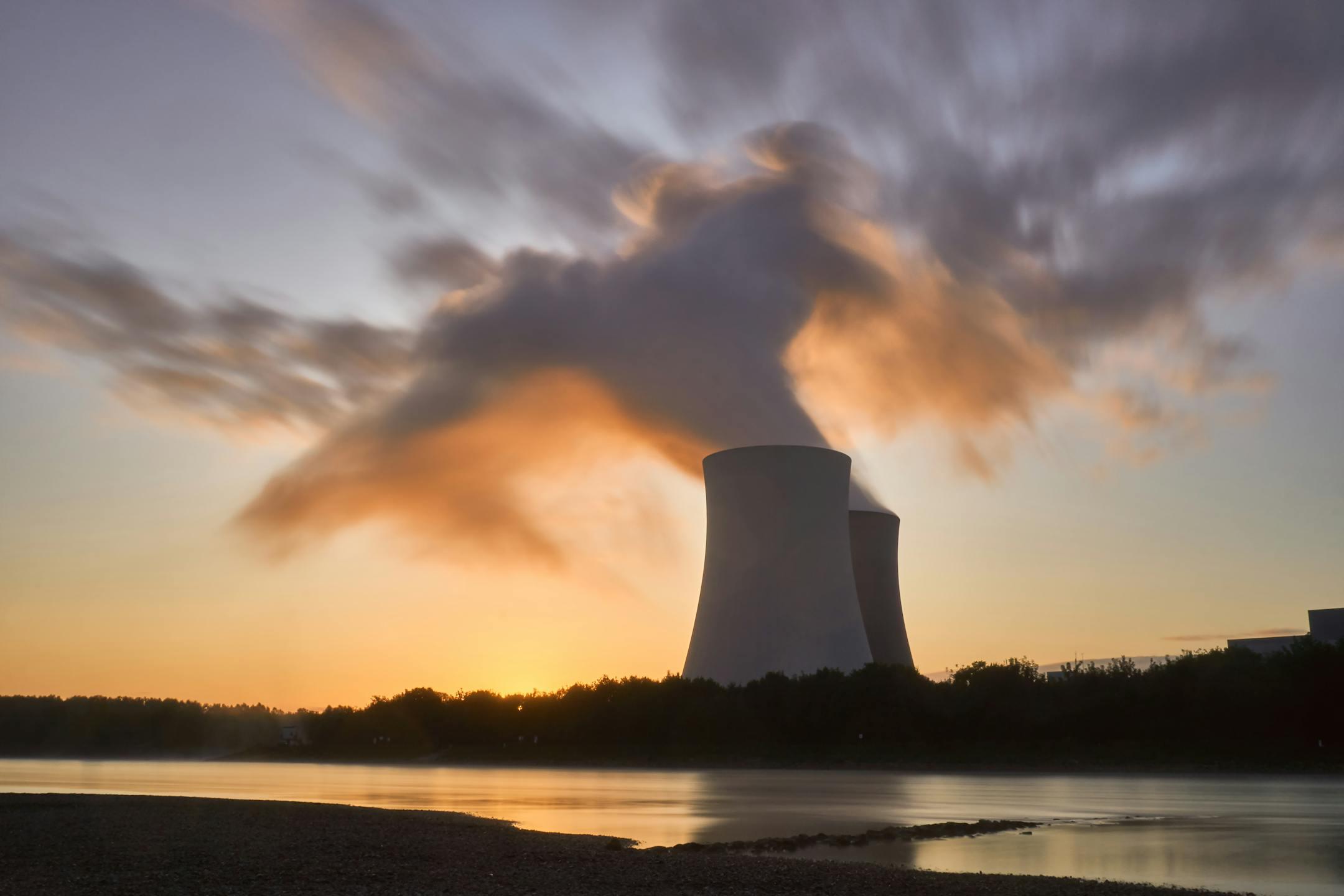Navigate policy insight
I'm Marina Gisbert del Campo, born and raised in Spain, and currently based in Alicante. With a dual academic background in Law and International Relations along with a Master's in EU studies and an expertise in European and Spanish Competition Law, I have developed a deep knowledge of European Law, Global Governance, and Public Policy.
I am currently pursuing a Masters in Intelectual Property and Digital Innovation (Magister Lvcentinvs) at the University of Alicante, a leading program in European and international IP law. This program complements my background in EU law and strengthens my analytical skills in regulation and innovation policy.
My experience spans legal advisory work through interships in court and private firms and high-level academic training across Spain and the UK.
My approach to legal and policy analysis is informed by a multicultural perspective and fluency in several languages. My strengths lie in my ability to synthesize complex EU frameworks with clarity and precision, always guided by a strong sense of ethics and public service.
Beyond my professional pursuits, I am engaged in volunteering and social work. Through this blog, I aim to share accessible and thoughtful commentary on legal developments and European public affairs from different areas.

-
Monday9:00am–2:00pm
-
Tuesday9:00am–2:00pm
-
<p>Wednesday</p>9:00am–10:00pm
-
Thursday9:00am–10:00pm
-
Friday9:00am–10:00pm
-
Saturday9:00am–6:00pm
-
Sunday9:00am–12:00pm

Understanding EU law and how it translates to enforcement in Member States is often a lot like navigating a labyrinth of regulations and directives. Nevertheless, mastering the intricacies of this legal framework is vital for individuals and businesses alike who operate within the European Union's jurisdiction. In this post, we present a comprehensive guide to applying EU law effectively, offering insights into its real-world implications and practical applications. By pointing out and breaking out the main difficulties, we aim to equip readers with the tools they need to understand and implement EU legislation in a coherent manner.
Whether you're a legal professional, a business owner, or simply someone interested in EU policies, I hope this resource will empower you to navigate the legal landscape with more confidence and clarity. Join us as we unpack the essential components of EU law, ensuring that you can achieve compliance and leverage its provisions for your advantage.
Navigating the complexities: A comprehensive guide to applying EU law effectively
The European Union (EU) operates within legal framework which, due to its complexity, can be challenging to navigate. Thus, understanding the principles and processes that govern EU law is essential for individuals and businesses alike. This comprehensive guide breaks down the essential components of EU law, including treaties, regulations, and directives. Each of these legal instruments serves a specific purpose, and recognizing their differences can facilitate a more effective application of the law in practice. By making yourself familiar with these key concepts surrounding EU law, you will be better equipped to address legal issues and comply with EU regulations.
Ensuring an efficient application of EU law also requires an understanding of the interplay between EU legislation and national laws. While EU law has supremacy over the laws of member states (developed over time by means of the case law of the Court of Justice of the European Union -Case 26/62 and Case 6/64-), the implementation process can vary significantly across countries. This variation highlights the importance of local context when applying EU law. In order to successfully navigate these complexities, you should engage with legal experts and use available resources, such as EU databases and legal commentaries. This proactive approach not only enhances compliance but also supports your strategic decision-making, allowing you to achieve better outcomes in the regulatory landscape.
Best practices for effective application of EU law in real-world scenarios
Applying EU law effectively calls for a solid mastery of its fundamental principles and an awareness of the context within which it operates. Professionals should make staying informed about ongoing legislative changes and landmark court rulings a priority. Subscriptions to relevant legal newsletters, participation in EU law workshops, and engagement in discussions with peers within the legal community are actions that will enhance your understanding of the evolving legal landscape and empower you to navigate it more confidently and make informed decisions. In addittion, fostering relationships with experienced legal practitioners can provide invaluable insights and guidance for practical applications.
Another pivotal best practice is to adopt a proactive compliance strategy. Businesses and organizations ought to implement internal policies and training programs that align with EU law requirements. This approach not only ensures compliance but also fosters a culture of legal awareness among employees. It is also crucial to establish clear communication channels to address legal queries and develop a framework for regular audits of compliance practices. By integrating EU law into daily operations and decision-making processes, organizations can mitigate risks, enhance compliance, and ensure that their practices align with the ever-changing EU legal environment.
Common pitfalls to avoid: Ensuring effective compliance with EU law
Applying EU law effectively requires awareness of common pitfalls that can hinder compliance. One major mistake may occur when organizations miss the importance of timely updates on legislative changes. EU law is dynamic, with fast-paced changes and constantly evolving with new regulations and directives. Failing to stay informed about these updates can lead to non-compliance and potential legal challenges, as well as falling behind to implement relevant strategies to adapt to said changes.
Institutions should develop systems for monitoring legislative changes and ensure their policies and practices align with current EU requirements. Regular training sessions for employees involved in compliance can also facilitate this process, keeping everyone aware of their obligations under EU law.
Another common pitfall is misunderstanding the jurisdictional scope of EU law. Businesses and institutions sometimes incorrectly assume that certain laws do not apply to them based on their location or industry. However, EU law often extends its reach to non-EU entities engaging in trade or business within its borders. Organizations should conduct thorough assessments of how EU legislation impacts their operations, regardless of geographical boundaries. Seeking legal counsel for clarification can also prevent misinterpretations and help organizations navigate the complexities of EU law more effectively, ensuring seamless compliance and minimizing legal risks.

The current legal framework, EU directive 2018/2001 on the promotion of the use of energy from renewable sources, establishes new targets and calculation rules. By 2030, 42.5 % of energy produced in the EU should come from renewables. Europe therefore grapples with the urgent need for sustainable energy solution. However, a noticeable shift is undeniably taking place among countries traditionally opposed to nuclear power. Denmark, Belgium, Spain, and Germany are now reconsidering their stances, marking a crucial moment in the European Union's climate and energy policy framework. This renewed interest in nuclear energy comes at a time when the Joint Research Centre (JRC) has launched a new nuclear simulation centre, positioning nuclear power as a viable option for enhancing energy security across the Union.
This evolving landscape invites a closer examination of the legal implications surrounding nuclear energy. The ongoing debates about the EU Taxonomy Regulation, particularly its classification of nuclear power as a sustainable investment, highlight significant tensions among Member States.
Additionally, the concept of subsidiarity—ensuring states have the right to choose their energy mixes—faces scrutiny as coordinated efforts for energy resilience intensify amidst geopolitical challenges. As we delve into these topics, it becomes clear that nuclear power is not only returning to the forefront of EU policy discussions but also prompting critical legal questions that will shape the future of energy in the region.
Unlocking the potential of nuclear power in EU climate policy
The recent shift in the stance of Denmark, Belgium, Spain, and Germany towards nuclear power implies a moment of transformation in the European Union's climate policy landscape. By reconsidering their traditional opposition, these countries signal a growing recognition of nuclear energy as a viable component in the transition to a sustainable energy future. As the EU addresses its ambitious climate targets, the integration of nuclear power offers a potential solution to bridge the gap between energy security and environmental responsibility, particularly in light of the ongoing energy crisis exacerbated by geopolitical tensions.
The establishment of the Joint Research Centre's new nuclear simulation hub further underscores this strategic pivot. By prioritizing nuclear research and development, the EU aims to illuminate the path towards achieving its climate goals while enhancing energy security across member states. This rekindled focus on nuclear energy reflects a broader acknowledgment that diverse energy sources, including nuclear, can play a crucial role in mitigating climate change impacts. Ultimately, unlocking the potential of nuclear power positions the EU to not only improve its energy resilience but also to demonstrate leadership in innovative and evidence-based climate solutions.
Navigating legal challenges: The taxonomy regulation and nuclear energy
The ongoing debate surrounding the EU Taxonomy Regulation underscores the complex legal landscape that nuclear energy must navigate to gain acceptance as a sustainable energy source. The Joint Research Centre's recent initiative to establish a nuclear simulation hub aligns with the EU's broader regulatory framework, but it also reignites scrutiny over the classification of nuclear power as 'green.' Although the Commission's Complementary Delegated Act (C(2022) 631) recognized nuclear energy as a transitional activity, the fierce opposition from NGOs and certain Member States, particularly Austria and Luxembourg, demonstrates the contentious pathway ahead. These challenges highlight the urgent need for clarity and consensus on nuclear's role in achieving the EU's climate goals.
Despite the controversy, the legal recognition of nuclear power as a valid part of the energy mix could significantly impact financing and investment in nuclear technology. A favorable outcome for nuclear in the taxonomy discussion would not only bolster its legitimacy but could also pave the way for increased funding for innovative projects aimed at reducing carbon emissions. Legal scholars must closely observe these developments, as they will shape both the regulatory environment surrounding nuclear energy and the broader narrative of sustainability in the EU. The balancing act between environmental integrity and energy security invites comprehensive legal scrutiny, ensuring that nuclear power's potential remains a critical topic in the EU climate policy conversation.
Balancing subsidiarity and unity: A new dawn for energy mix sovereignty in the EU
The recent shift in Denmark, Belgium, Spain, and Germany's stance on nuclear power highlights a critical intersection between national energy sovereignty and EU collective action. Under Article 194(2) TFEU, each Member State retains the right to define its energy mix, advocating for a decentralized approach to energy regulation. However, the European Union's growing emphasis on energy security and resilience is pushing these states towards a more harmonized approach. The establishment of the Joint Research Centre (JRC) nuclear simulation hub exemplifies this trend, promoting collaboration while retaining national prerogatives. This dual focus may lead to innovative regulatory frameworks that respect member states' sovereignty while simultaneously addressing broader EU interests.
As the EU grapples with increasing geopolitical pressures and climate ambitions, the challenge becomes how to reconcile national preferences with the need for a cohesive energy policy. The integration of simulation hubs and technical infrastructure can enhance cooperation among Member States while providing a platform for efficient knowledge sharing and best practices. This collaborative ecosystem can help bridge differences in energy strategies and facilitate a unified response to climate challenges. Legal scholars and policymakers must closely observe this evolving dynamic, ensuring that the principles of subsidiarity and solidarity coexist effectively within the ever-changing landscape of EU energy law and climate policy.